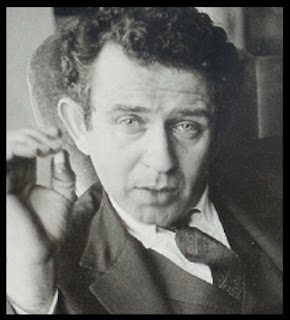
Geoffrey Gates' blog is named 'Perpetual Locomotion', which derives from a book he wrote, and published,
A Ticket for Perpetual Locomotion. Today he linked to me and I decided to use this event as a launching pad for a small hypothesis.
First, though, it's salutory to inspect the rate of posting there: seven posts since establishing the blog in July 2006. My blog has run over 730 posts in a period just a few months longer. His Sitemeter counter is registering two visits per day.
Most posts are to mark a significant event and generally the blog is not a run-by-run ouverture of the creative process (he's working on novel two now). Although I frequent Gleebooks, who stock(ed) the novel, I've not seen it. Or read about it; no reviews have appeared in the mainstream press, afaik.
Which brings me to the hypothesis: Why are we so critical? What does it mean to be critical? What basic need does it meet?
Given the opportunity, most people want to air a view, regardless of the topic. This is why vox pops always deliver reasonably good content for TV stations with an 'issue' to inspect. They are guaranteed several perspectives, and will probably choose the one that delivers most evidence of disaffection.
My opinion (if you're even slightly interested) comes from study done this year, particularly two units concerned with the art of PR. A highly-loaded acronym, I vow. What is the 'public sphere' and how did it become so important in recent decades? Why is it so disappointing for me to see a writer's blog so little (a) visited and (b) updated?
I believe that we are:
- Social animals, and
- Conditioned by genes to use language
Given these characteristics, it is inevitable that we live our lives within one or more narratives. The story may be different at different times of our lives, but the need for an over-arching narrative (PR theorists call this 'grand strategy') is so convincing I'm tempted to shut down my Facebook site.
My sqeamishness is due to my tendency to say what I think. Given the plethora of fora frequented by individuals with similar narratives as me, the opportunity to participate in them is almost overwhelming. But it's not politic to air a view in public. In fact this, I believe, is the reason for the current popularity of (a) celebrity and (b) sport.
Neither make any ideological claims (overt at least) on us. Within the narratives that play out in these arenas of aspiration, we may even discuss important topics with work colleagues, total strangers met at the train station, or our home-loan provider.
No danger. And it's fun to speculate in terms anyone can understand (we are nothing if not democratic!) as to whether failure can be turned into dazzling success. Or vice versa. Possibly Geoffrey Gates hopes I can help him to move beyond the dismal evidence of seven posts in two years, and win readers.
Given my own Sitemeter daily total, however, that's unlikely. And here's another thing: my blog is full of opinion (my opinion). Many people (myself included) prefer facts to another's spin. For this reason, I rarely read the op-ed page of my daily broadsheet.
At university, furthermore, you are almost forced to be critical. It's part of the paradigm of study: to question the foundations of everything you encounter. This bias (age-old) may, however, become outmoded given the current impulse of universities to think of themselves as vocational training institutes, rather than loci of higher learning.
To take that paradigm, though, and subscribe to its tone and method in the workplace, is quite another issue. Possibly, we need to stick with Paris Hilton and Toma Lomu, and eschew the more meaty fillings provided by books of history, literature, essays, and criticism. It is in these that I have always found my crucible of desire to fill most sweetly.
Yet I was told, by the man who makes my furniture, that those of his friends who are most 'academic' usually watch programs traditionally poo-poohed for having little substance. Is this the 'postmodern' paradigm kicking in? Are we to attune ourselves to commodities (culturally speaking) and ignore serious writers such as Geoffrey?
For myself, I love
CSI: Miami (I
posted on it in April) because of the super-saturated colours. The original
CSI, set in Las Vegas, is not as sweet on the retina. Then we've got, more recently,
CSI: New York, starring Gary Sinise. This version is more hard-boiled, issues-driven, 'serious' (Serious Sinise - a new nickname). Three flavours of the same basic product (Jerry Bruckheimer; also responsible for
Cold Case).
Channel Nine's
Damages (I also
posted on this Glenn Close vehicle) is spun as a 'serious' item and the aesthetics reflect that.
 Review: Mao's Last Dancer, Li Cunxin (2003)
Review: Mao's Last Dancer, Li Cunxin (2003)























